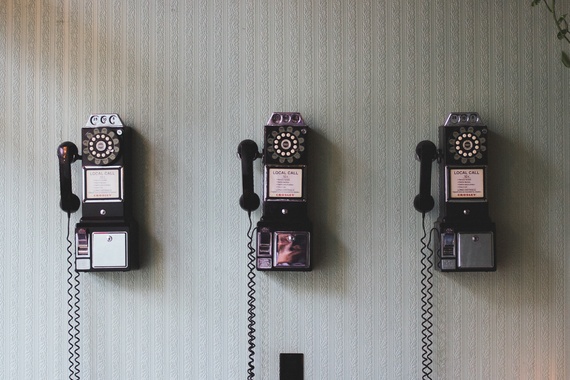Rage Against the Machine

We may have a ways to go before a full on robot-apocalypse is upon us, but artificial intelligence is certainly seeping into our day-to-day lives in real time. Between Siri, smart cars, and that robot who is really, really good at online chess, we find ourselves suddenly living side-by-side with automated creations of our own design.
Humanity’s relationship with robots can probably best be described as “frenemies.” Sometimes they’re our friends, sometimes they’re our enemies. Sometimes they help us find directions to the nearest gas station, sometimes they call our phones incessantly for no reason.
The latter issue – “robocalling,” as it has come to be known – is actually one of the most lamented consumer issues in the United States. Each month, more than 150,000 consumers submit robocalling complaints to the Federal Trade Commission and Federal Communications Commission. That’s 1.8 million complaints a year.
In an interview with Consumer Reports, Bikram Bandy, the program coordinator for the Do Not Call Registry, announced that “[r]obocalls have eclipsed live telemarketing calls” as the primary source of consumer complaints.
So, what are robocalls? If you have a telephone and enjoy eating dinner uninterrupted, I’m sure you’ve encountered them more than you care to remember. Robocalls are pre-recorded and autodialed phone calls with some kind of information, advertisement, or scam.
Interestingly enough, robocalling as a marketing practice is entirely against the law. If you haven’t given your written consent, automated telemarketers should not be calling your cell phone or your landline. So, not only are robots calling you, but, more specifically, a bunch of anti-establishment, law-breaking robots are eating up your minutes.
It’s a big challenge to keep the bots at bay because so many of them are calling through the internet or out of the country. In an interview with NPR, Bandy said that these offshore and online practices "mak[e] law enforcement more difficult, it makes it harder for us to track it down, it makes it harder for us to stop it.”
No wonder the problem is growing. According to Aaron Foss, founder of Nomorobo, a software company that uses technology to block robocalls, each day the business adds “over 400 new numbers to the blacklist.”

For many, the whole practice might seem annoying, but ultimately harmless, but for others robocalling is a lot more sinister. The elderly, a famously trusting and vulnerable population, are especially targeted by scammers.
In fact, ConsumersUnion reported that in 2011 consumers lost about $350 million to scams. That’s a lot more money than “annoying.”
If robots have got you down, there are a few things you can do to reduce the robocalls you get each day. Check out some third party apps to block unwanted calls – there are a bunch for the various kinds of smartphones out there. Make sure you’re in the Do Not Call Registry and, if you get a call, file a complaint with the Federal Trade Commission, so they can investigate.
The robots are coming, so let’s teach them to play nice and let's make them our friends.
